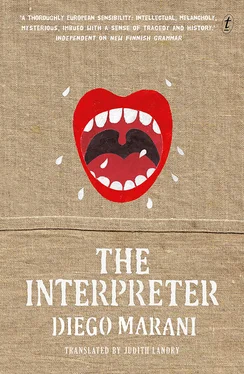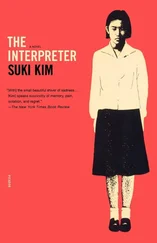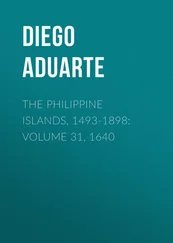For the moment, the mist showed no signs of lifting; the weak winter sun lightened it but never really broke through. By midday, though, the sky was dazzlingly bright, the light falling sharply on everything in sight and sending out cold reflections. An endless landscape of blurred fields sped past the windows; an occasional house loomed up through the purplish haze, then sank away into the blind eye of my rear-view mirror. I drove for hours without seeing a living soul, without encountering any other roads; sometimes a canal would appear to the side of the track, then wander off again to lose itself in meadows stiff with frost. Finally, in the distance, I saw a dense wall of tree trunks coming towards me through the mist, and found myself engulfed in a fir wood covering one slope of a hill, the road running up it in broad curves. When I emerged from the wood in a clearing at the top, I saw a broad plain stretched out below me, and a bend in a dark, muddy river flowing through fields lightly veiled by the tender green of the new corn. The track now ran downhill through leafless poplar groves, then joined a larger road covered with smooth, black asphalt. Just as I slipped into the flow of traffic, a pale sun finally revealed itself, causing the whole landscape to glitter unexpectedly: points of brightness sparkled on the recently upturned earth, on the metal of the cars, on the scrawls of ice in the ditches. At last I glimpsed a rusty signpost at the side of the road, and slowed down to read it: thirty kilometres to Suceava. Without noticing it, I had entered Romania.
After a dozen kilometres or so, I stopped to fill up with petrol and buy a few provisions. Going into the bar, I cast a nervous glance over its occupants, a tingle of excitement running down my spine. I fingered the gun in my pocket, feeling a nasty smile form on my lips; I ordered some sausage and coffee and ate hurriedly, glancing around warily as I did so. The barman had abandoned his post to go and wash the kitchen floor; I could see him through the half-open door. Such few customers as there were were smoking in silence and drinking large tankards of beer. I put my cup on the counter and walked towards the door almost with regret, then turned to wink at the girl at the till, who picked up my crumpled banknotes hastily, pulling her cardigan over her chest in embarrassment. I drove out of the forecourt, past the garage building, parked behind an abandoned articulated lorry and locked myself in — it was time to get some sleep. I set off again around dusk, following the signs to the Hungarian border.
I still can’t really understand how it was that I became a bandit. I was clearly drunk on the sheer thrill of risk-taking. All sense of caution fell away, and I was gripped by an urge to risk my life in order to get the measure of the destiny that was dogging me. I enjoyed shuffling its cards, but in no way was I seeking a way out: rather than submit to the sentence it had in store for me, I preferred to cock a snook at it by laying myself open to an alternative, equally unpredictable downfall. Sated with the danger into which I was plunging so heedlessly, I forgot about the interpreter and Dr Barnung; but I must admit that my criminal undertakings may also have been fed by a pinch of vanity — poor things, perhaps, but my own. I even went as far as to think that, had my bosses back there in Geneva come to hear of them, they would have been proud of me. After all, they were forever urging me to try out new ideas. Inventiveness, daring, personal initiative, that’s what all bureaucracies are lacking; I’d been hearing that for years. I was proud of this new skill I’d acquired entirely on my own; with a stab of annoyance, I even began to regret that I could no longer enter the lists for promotion to the post of director-general. I committed every robbery hoping to read about it in the next day’s papers, and at night I’d fall asleep imagining the headlines.
‘Odessa murderer strikes again’, ‘Swiss criminal holds police at bay’, ‘Felix Bellamy, the Beast of Bukovina’.
I bought all the newspapers that mentioned me and piled them up on the back seat; I still have some cuttings, and carry them about with me in my wallet. I drove along highways and byways, pillaging shops, attacking stationary articulated lorries and isolated houses, but my true passion was the petrol stations on the A576. There was something particularly thrilling about training a gun on a roomful of people while the traffic rolled quietly by behind my back; someone might turn on me at any moment, one of the men I was threatening might pull out a gun himself, the police might burst in. In fact, none of this ever happened; those grim faces were afraid of me, people were quaking, some of them crying. They were at my mercy: I could kill them one by one with a bullet in the head or torture them slowly, firing at them limb by limb. I could do anything — except exchange my fate with theirs. I could have selected one of them at random, stuck my pistol in his hand and taken his place among the rest. I could have freed myself of myself, of that unknown me who was pursuing me, whose poisonous breath I felt upon my neck.
I always used the same strategy for my attacks: I’d hide the car in some track in the surrounding countryside and approach my goal by foot. I’d wait until there were few enough people in the service station for me to be able to observe them at length and assess their reactions. At such moments I felt strangely powerful: I was afraid of no one and nothing, not even of my convulsions, though these, it was true, were becoming increasingly few and far between. They added yet another grim note to the fear felt by my victims as, pistol cocked, I would begin to jabber and howl, wide-eyed and quivering. At such times, too, I felt my body monstrously enlarged, as though, until that point, it had been nothing more than a cold statue, and I had come into possession of it then and there. I saw my own flesh magnified as though under a microscope, my hairs like posts implanted in my skin, my wrinkles like canyons in a petrified desert, my bones like deformed encrustations created from a jet of red-hot lava which had suddenly solidified. When in the grip of such hallucinations I would note the tug of each muscle, the impulse of every nerve, taking stock of their efficiency, amazed by their effortless infallibility, surprised to find myself so resilient, my movements as deft and firm as those of a healthy man. A strange tingling sensation would creep along my limbs; they felt refreshed, as though cleansed of some lingering poison. It was as though all that was left of me was my body; something which had prevented it from developing was falling away. This hollow armature of flesh and bone was growing exponentially, capable now of unheard-of feats. Perhaps, in fact, one single shove would have knocked me off my feet; if one of my victims had had the courage to come up to me and twist my wrist I would have dropped the gun and fallen to my knees in pain, lain spread-eagled in the sawdust, alive yet dead, like a lizard’s chopped-off tail. Sometimes a deathly chill would creep over me, as though I were turning to ice, but then the sheer thrill of the engagement would heat my blood, sending it beating through my temples, surging through my veins; I would stamp my feet wildly and shriek out my threats, clutching the butt of my gun and feeling that I too was made of gunmetal. I’d fire the odd shot in the confusion, picking off the glasses in their racks, or aiming at the electronic games. I didn’t waste my bullets, though; I’d found some cartridge clips in Radu’s car, but I was nervous about running out of ammunition. After my attacks I’d run away off into the countryside, lock myself in the car, hide the money and pistol under the seat and call a number chosen at random from the list on Radu’s mobile:
Читать дальше












